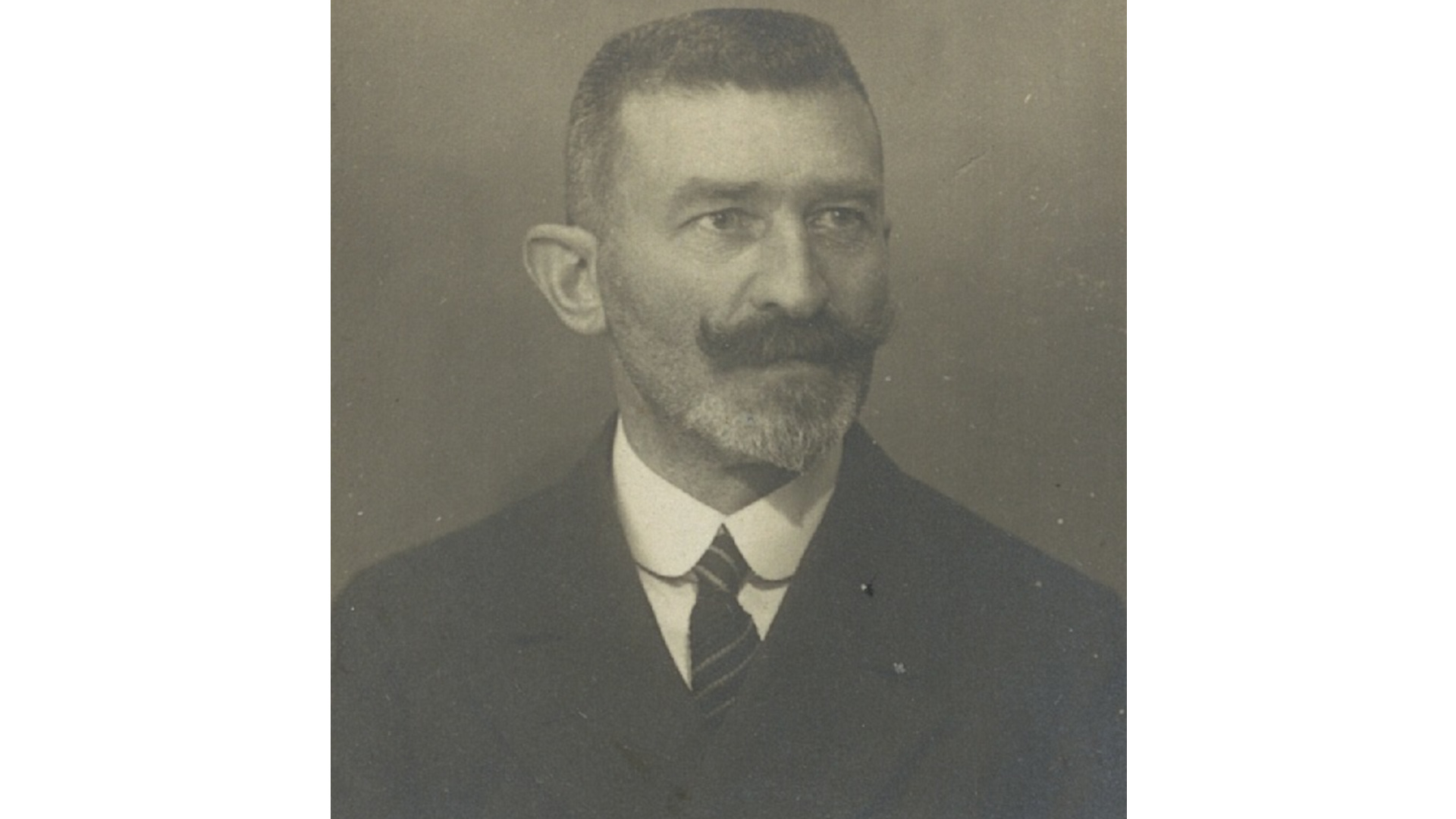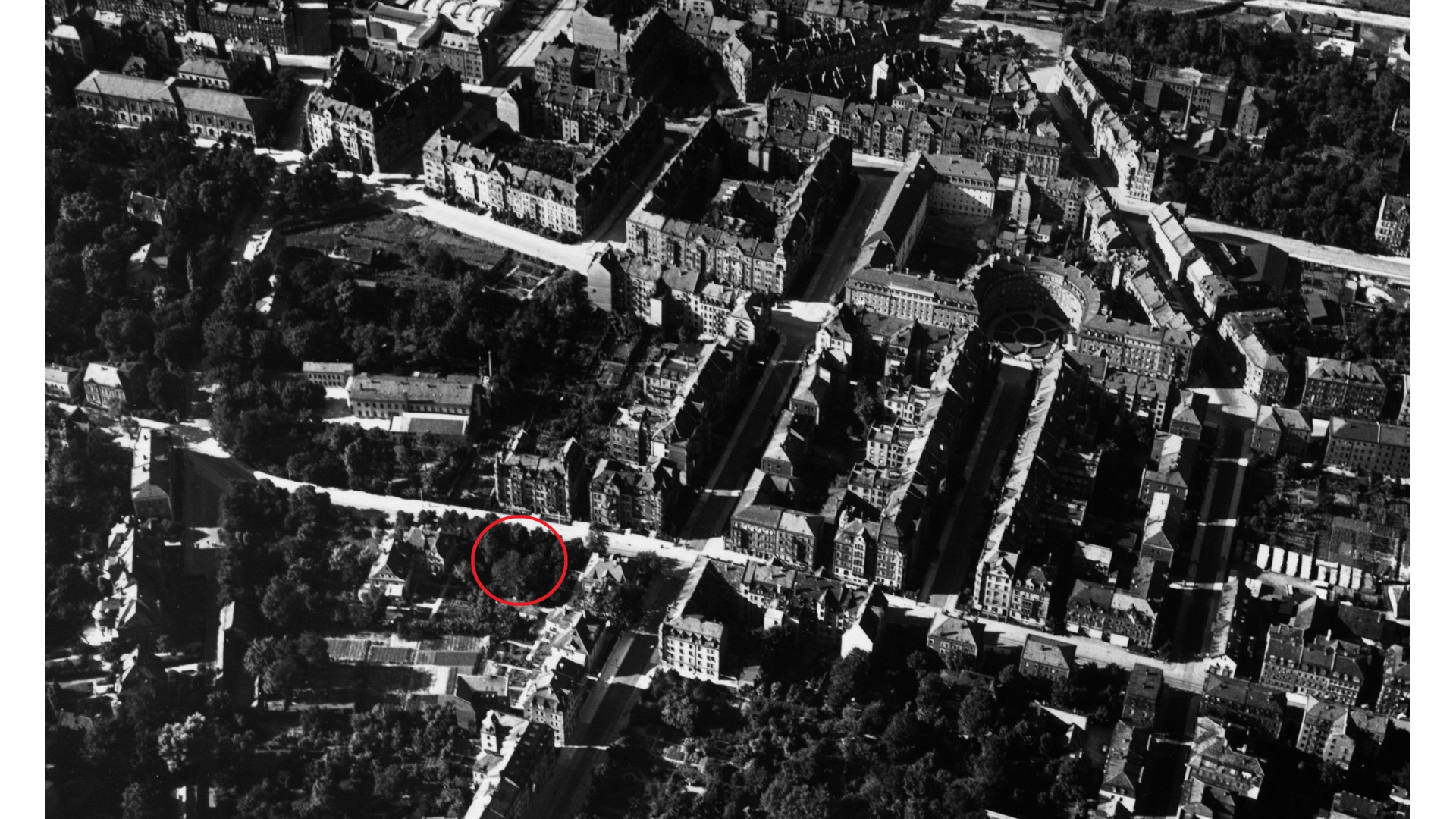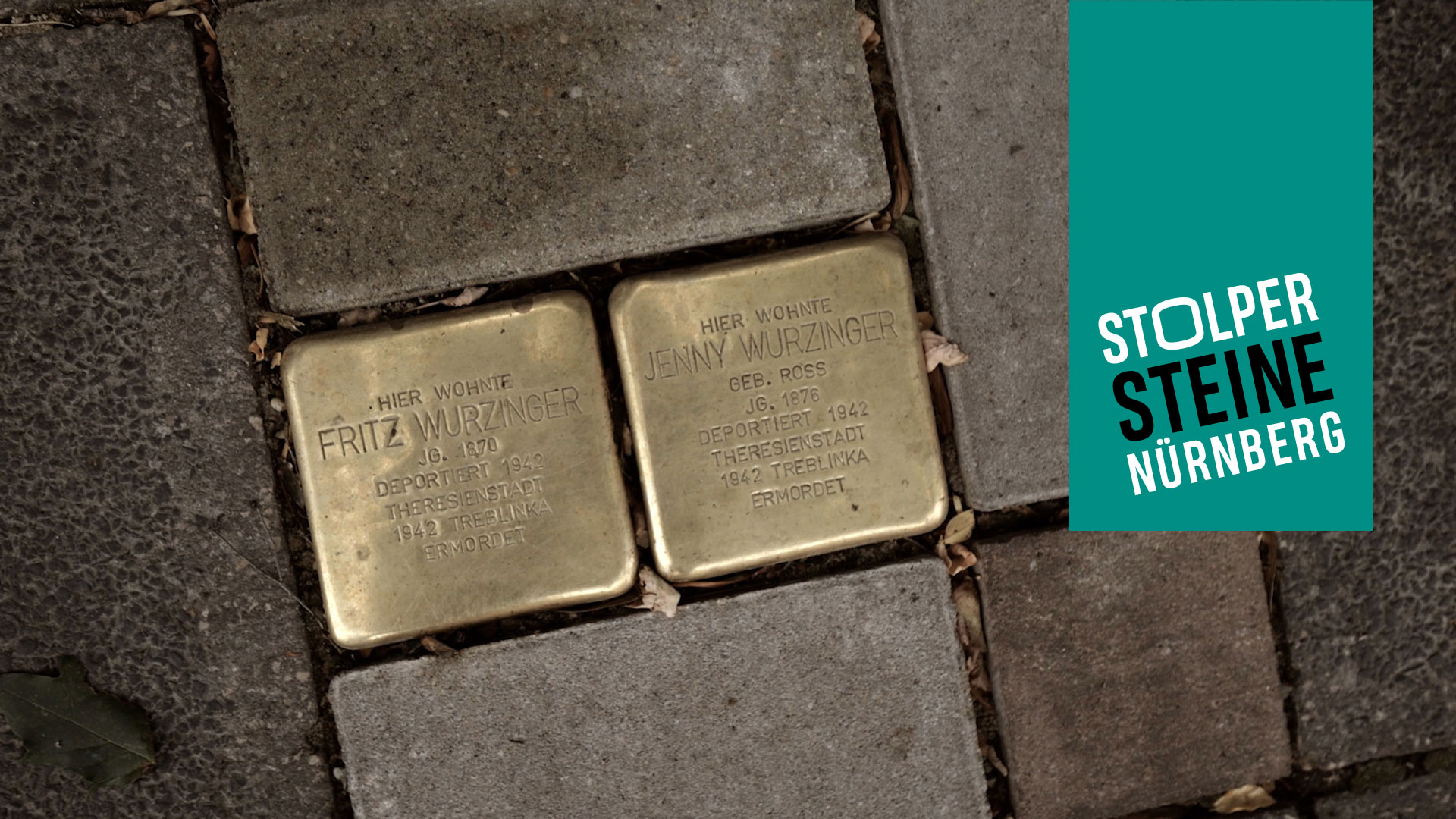| Location of stone: Pirckheimerstrasse 30 (formerly Mittlere Pirckheimerstrasse 20) | District: Garten hinter der Veste |
| Sponsor: Jan Meyer | Laying of stone: 26 June 2022 |
Biography
On 26 June 2022 Gunter Demnig laid ten stumbling stones at eight different locations in the city. Jan Meyer had stumbling stones laid for the couple Fritz Wurzinger and his wife Jenny, their son Stephan and daughter-in-law Jenny. The parents were murdered in Treblinka. Their son, together with his wife, managed to emigrate to the USA.
Fritz Wurzinger was born in Ansbach on 1 May 1870, the son of Leonhard Wurzinger and Louise (née Hirschmann). Fritz’s father was a horse trader.
In June 1896 Fritz married Jenny Ross in Nuremberg. Jenny, born there on 15 June 1876, was the daughter of Emanuel Ross and his wife Jette (née Hirschmann). Emanuel Ross owned a textile business. Following the marriage, Fritz entered his father-in-law’s business. Fritz and Jenny had two sons: Stephan (born on 31 August 1897) and Alfred (born on 5 June 1901).
After the First World War Fritz Wurzinger built a house in Rückersdorf, approximately 15 kilometres north-east of Nuremberg. The house, built for the family, had eight rooms.
At the beginning of the 1930s, the Ross Brothers textile business was run by Fritz Wurzinger and his brother-in-law Siegbert Ross. When Siegbert died, his widow and son emigrated to South America, via Italy, in 1934.
Fritz did not want to run the firm alone and dissolved the company. Instead, he opened a textile retail store in Färberstrasse 37/39. However, due to the boycotting of Jewish businesses, the store was not in operation for very long. In 1937, aged 67, Fritz also closed down this business.
One year later, the couple sold the house at Ludwigshöhe in Rückersdorf, as they could not find domestic staff anymore and were not able to manage the house on their own. After the so-called “Night of Broken Glass”, the couple moved to Nuremberg. Many Jews did this, because it was easier to live anonymously in the city.
Fritz and Jenny Wurzinger rented an apartment in Mittlere Pirckheimerstrasse 20. The owners of the house were Jewish.
Two years later, the couple were forced to move to Bauerngasse 18, one of the “Jewish houses” in the city. From there, on 10 September 1942, they were deported to Theresienstadt concentration camp. Approximately two weeks later, on 29 September 1942, they were deported to Treblinka concentration camp and murdered there.
The two sons Stephan and Alfred, together with their wives, managed to emigrate to the USA in 1938/39.
- Nuremberg City Archives, C21/X No. 10 registration card.
- Nuremberg City Archives (ed.) Gedenkbuch für die Nürnberger Opfer der Schoa (Quellen zur Geschichte und Kultur der Stadt Nürnberg, vol. 29), Nuremberg 1998, pp. 387ff.
- Nuremberg City Archives (ed.) Gedenkbuch für die Nürnberger Opfer der Schoa, supplementary volume (Quellen zur Geschichte und Kultur der Stadt Nürnberg, vol. 30), Nuremberg 2002, p. 64.
- Letter from the American Federation Of Jews From Europa to the Jewish Restitution Successor Organization on 27 November 1951 [private archive of Jan Meyer].







